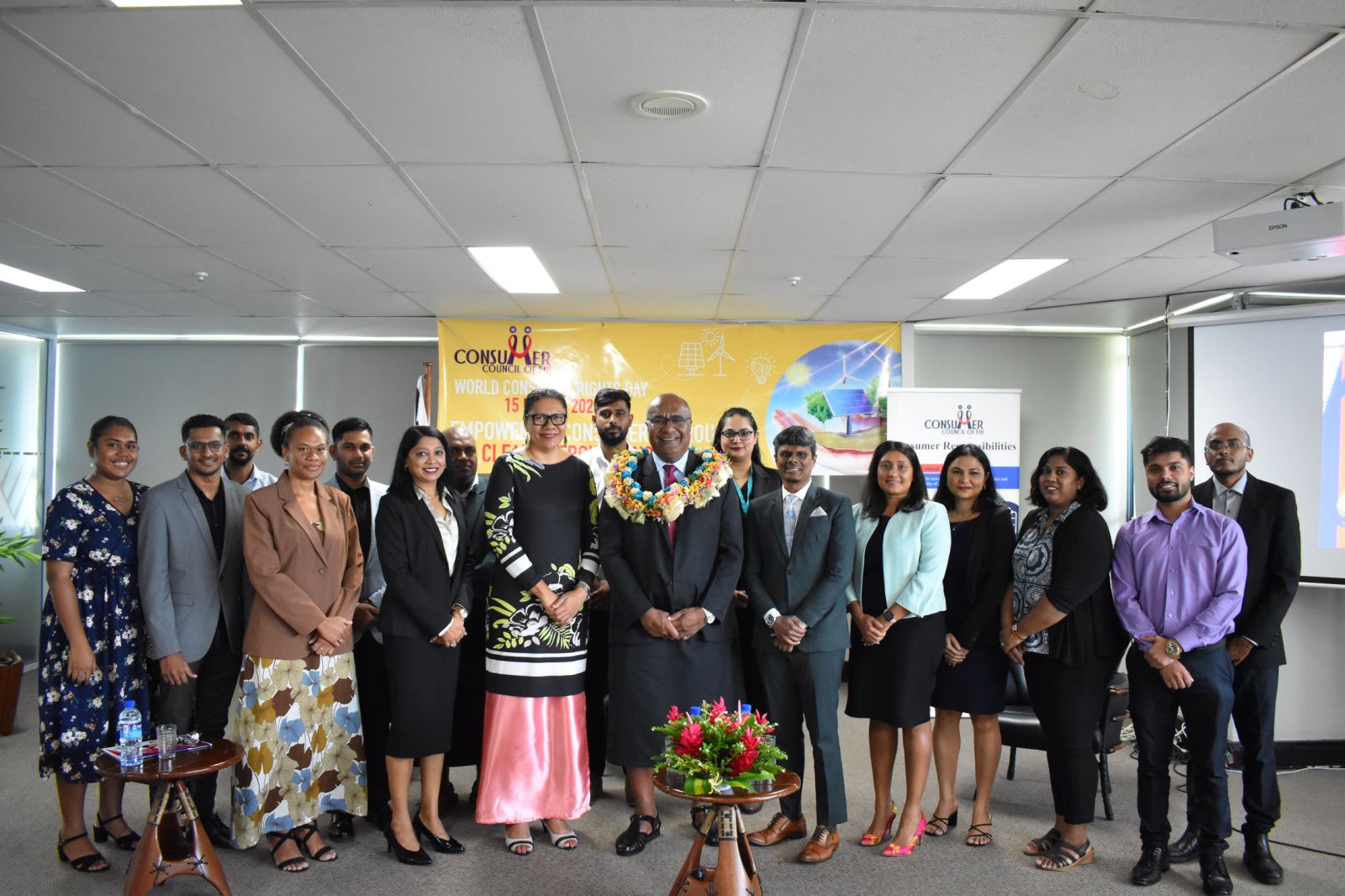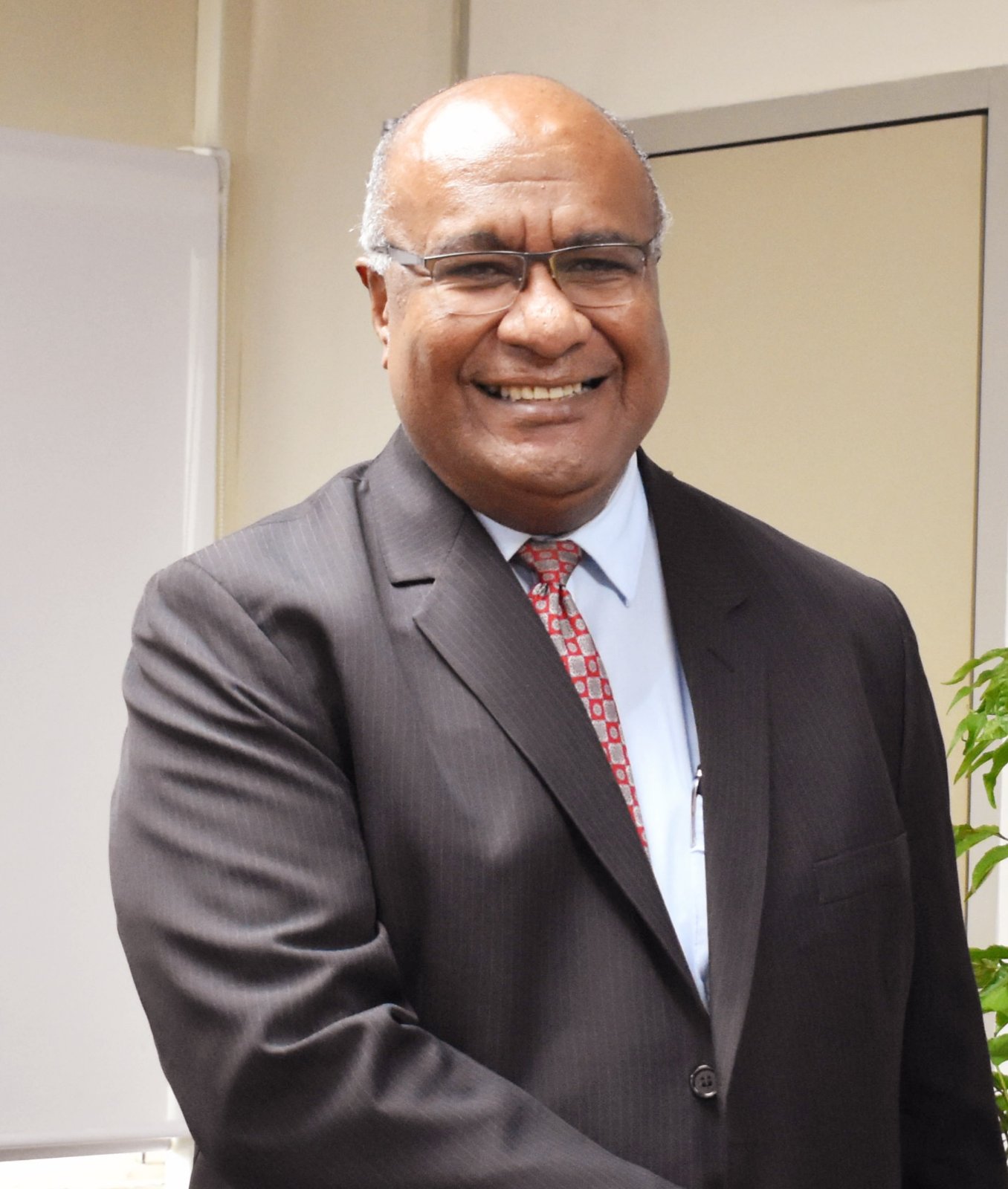The Chief Executive Officer, Consumer Council of Fiji, Ms Seema Shandil,
The Consumer Council of Fiji Board of Directors,
The Deputy Governor of Reserve Bank of Fiji Mr Esala Masitabua,
The Solicitor General, Mr Ropate Green,
CEO’s and Heads of organisations,
Esteemed panellists,
Representatives from the private sector, NGOs and CSOs,
Guests,
Members of the Media,
Bula Vinaka and a “Happy World Consumer Rights Day” to you all.
I am delighted to join you all this morning, and I thank the Consumer Council CEO and her team for inviting me to officiate at today’s celebration.
Ladies and Gentlemen,
As consumers we have so much influence to change the World, by being careful in what we buy – and for that reason, today we celebrate our rights.
We are all consumers, and as the largest economic group we have so much influence on almost every dynamic, whether it is a public or private economic decision.
Did you know that two-thirds of all spending in the economy is by consumers?
So, you can see how much control consumers have in any country. And that is why we are present here today – to embark on a journey to protect and empower consumers of today and of the future.
Ladies and Gentlemen,
World Consumer Rights Day was inspired by late former President of the United States John F Kennedy, who sent a special message to the US Congress on 15th March 1962, in which he formally addressed the issue of consumer rights. He was the first World leader to do so and as a result, the international consumer movement first marked the World Consumer Rights Day date in 1983 and now uses the day annually to mobilise action on important issues and campaigns.
Fiji has always been a staunch promoter of consumer rights and consumer protection and since 1976 Fiji also formed an independent consumer protection and advocacy organisation – the Consumer Council of Fiji.
At this juncture, I would also like to thank the Consumer Council of Fiji for spearheading this national celebration for over four decades and for being a fearless promoter of consumer rights.
Ladies and Gentlemen,
In a rapidly changing marketplace, this year’s World Consumer Rights Day is sparking constructive conversation, making the case for solutions that put consumer rights at the core of meaningful and long-lasting change; and this year’s theme could be more relevant and timely as it places focus on something which impacts us all.
The world leaders at COP27 in Egypt focused on securing a just transition in the energy sector. In support of this, the World Consumer Rights Day 2023 theme was announced by Consumers International as “Empowering Consumers Through Clean Energy Transitions”. Amidst the greatest cost-of-living crisis in a generation and as the energy world drastically responds to supply and climate issues, consumers have a core role to play in delivering a just transition.
The Fiji Government recognises the need to accelerate our efforts through promoting clean energy for sustainable livelihoods. Through the Indo-Pacific Economic Partnership Framework, Fiji negotiates an important area of discussion “clean energy” wherein, Fiji poses the challenges Small Island Developing States (SIDS) weather – and our collective approach to navigate through this inescapable challenge.
Furthermore, we have encouraged businesses, particularly MSMEs to relook at their business model and incorporate “greener practices”. We have also seen businesses becoming more eco-conscious and are adopting climate friendly practices. A simple example is that some MSMEs are opting for solar panels instead of diesel generators as a source of power supply.
Ladies and Gentlemen,
Together with food and finance price increases, consumers everywhere are radically changing their lifestyles to access essential needs. In a recent survey by Consumers International, it was revealed that over 80 percent of respondents reported that they are adjusting their budget and spending to pay their energy bills.
Ladies and Gentlemen,
Increasing access to affordable, reliable, sustainable and cleaner energy will also play a major part in averting catastrophic climate change, with consumption shifts now recognised and estimated to reduce future greenhouse gas emissions by 40-70 percent. The largest contributor to global greenhouse gas emissions is energy use and production.
With around two thirds of the world’s electricity still coming from burning fossil fuels, reaching these climate goals by 2050 will require at least 80 percent of electricity to be shifted to low carbon sources, according to the International Energy Agency.
Ladies and Gentlemen,
Whilst Fiji is one of the smallest contributors towards unrenewable energy, we must still do our part and lead by example. I am happy to see representatives from different Government ministries, industry players, business sector, NGOs and CSOs and consumer representatives – here today.
We all also have a very important role to play. As leaders in different sectors, you must step in and invest in transition towards cleaner energy. We cannot sit on our laurels and expect developed countries to change their actions! We must lead by example!
Our vision is for a clean, green and equitable energy future. The rapid transition to renewable energy will be good for people and the planet. Therefore, I would like to assure all that your Government is committed to accelerating the transition to clean energy.
Over the next few years, we will focus on amplifying the current policies relating to clean energy and work hand in hand with stakeholders such as yourselves to map a greener path for Fiji.
With these few words, I would like to thank the Consumer Council of Fiji once again for organising this very important event and I look forward to robust discussions by our esteemed panel today.
Vinaka Vakalevu and Thank You.



